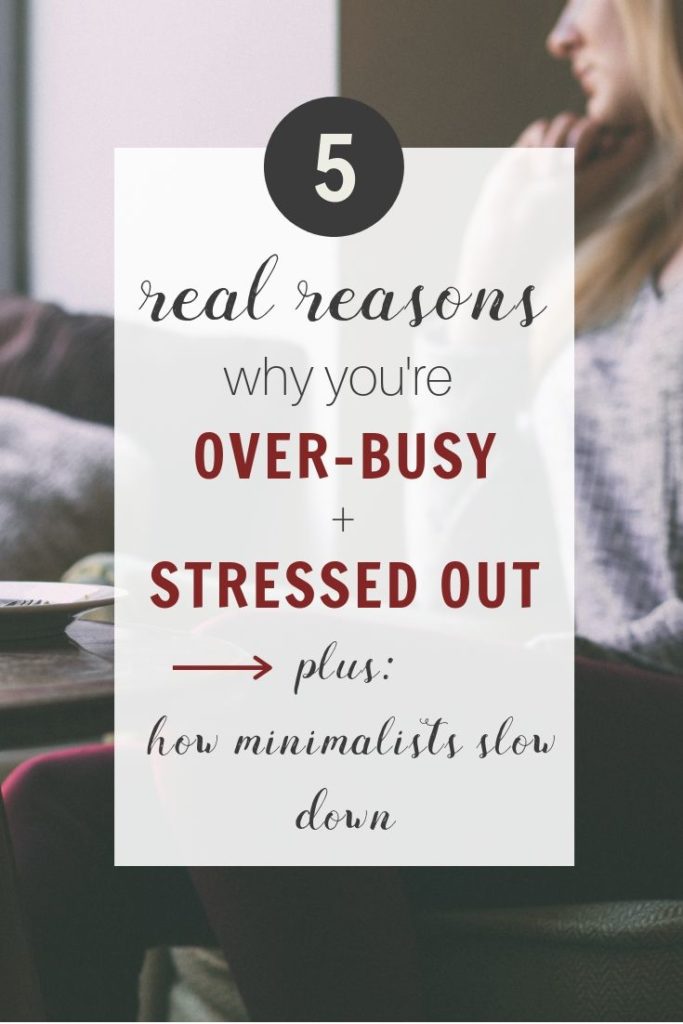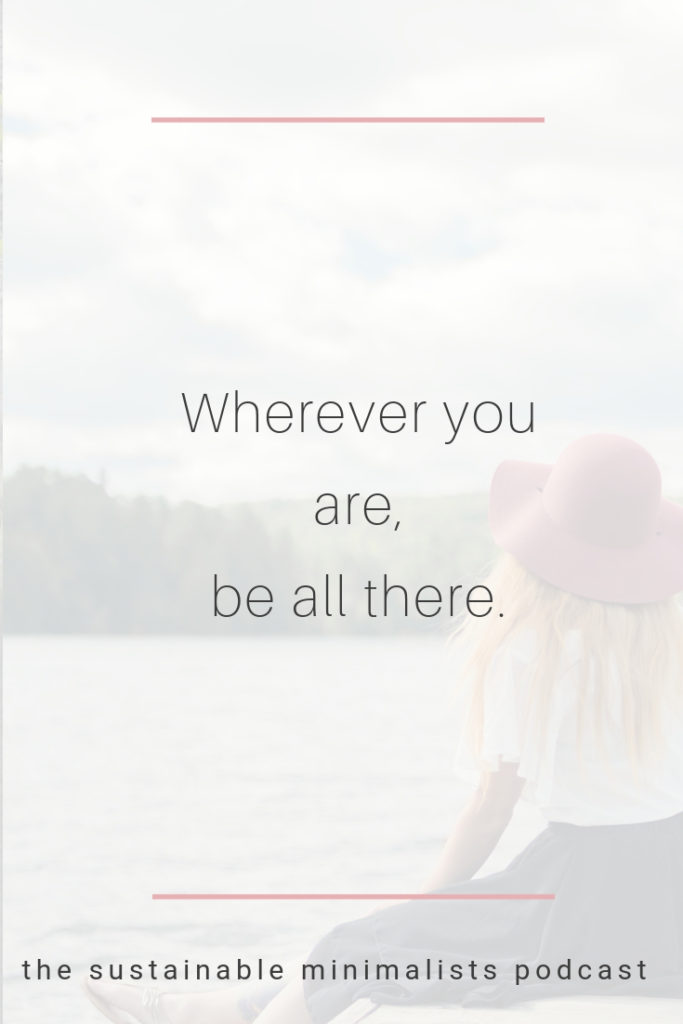The 5 Real Reasons Why You’re So Busy
Does the slow living movement intrigue you? If you recently went on a summer vacation you know it’s true: A slow, intentional life feels right.
Yet, despite our best intentions, most of us retreat to our busy habits + our cluttered ways hours after returning home.
Here’s the truth. Uncovering why you’re over-busy is hard, slow work. But seasoned minimalists know that in order to know HOW to slow down you first need to understand the root of your busyness.
_
If you really want to join the slow living movement, the key to lasting change is uncovering why you’re so busy in the first place.
_
If you’re ready to live slow – and if you’re ready to uncover the why behind your busyness – minimalist blogger Jennifer Burger has 5 pieces of insight for you.
“
“People are looking for decluttering tips … but it’s a bit like people looking for dieting tips. You can get tips to lose weight for a short period of time but if you don’t get to the bottom of why you have too much weight or too much stuff in the first place then no dieting or decluttering is going to help you [join the slow living movement] in the long-term.”
”
1. You use busyness + clutter as means to avoid your insecurities.
_____
Vulnerability is scary, so you stay busy + you keep buying.
Do you fear being different? Maybe you purchase clothes in excess to fit in.
Do social situations create anxiety? Perhaps you work a lot to avoid making friends.
Do you fear being judged? Maybe you go above + beyond at everything you take on to prove your worth to others.
When we fill our lives with work + obligations, there’s neither the time nor the mental space to face insecurities head-on.
2. You’ve adopted the habits of others.
_____
Was your father at work 365 days a year? Did your strong, independent mother rarely sit down? If so, you may find yourself adopting your parents’ ideals about work + busyness as your own.
Alternately, you may find yourself internalizing society’s beliefs on the importance of work. In the Western World, busyness is tied to self-worth: Working hard is what smart, successful people do.
Shopping, therefore, is your reward for all your hard work.
While there’s nothing wrong with rewarding work, many people find themselves stuck in the Work-Watch-Spend Cycle without ever wanting to be there the first place.
3. You tell yourself stories that aren’t true.
_____
We often believe falsehoods to justify busyness, including:
– Your life is tough so you have to work extra hard to pay the bills (in reality, your life isn’t all that tough).
– You have to work twice as hard as everyone else in order to get a fair shake (you don’t).
– If you aren’t ahead, you’re behind (you’re not.)
Sticking to a daily gratitude practice is a powerful way to bust these woe-is-me myths.
4. You prefer to be relatable.
_____
Real problems are hard to talk about, and that’s why there’s a camaraderie around being busy.
Think about it. When you meet a friend for coffee, it’s natural to talk about how busy you are because it’s almost guaranteed your friend will commiserate.
It’s much harder to open yourself up + discuss the deeper issues you may struggle with.
So you keep conversations on the surface: Instead of attempting vulnerability, you stay relatable.
5. It’s hard to face past mistakes, so you avoid them.
_____
Have a cluttered home? Decluttering means admitting you’ve made thousands of mistakes by buying or accepting items you didn’t want + don’t need.
Humans aren’t wired to acknowledge mistakes, so we avoid facing them altogether.
Decluttering may bring up other uncomfortable emotions, too. By not decluttering, you’re also avoiding guilt, shame, buried memories + a host of other tough emotions.
Why are you so busy? Which of these reasons resonate with you?



